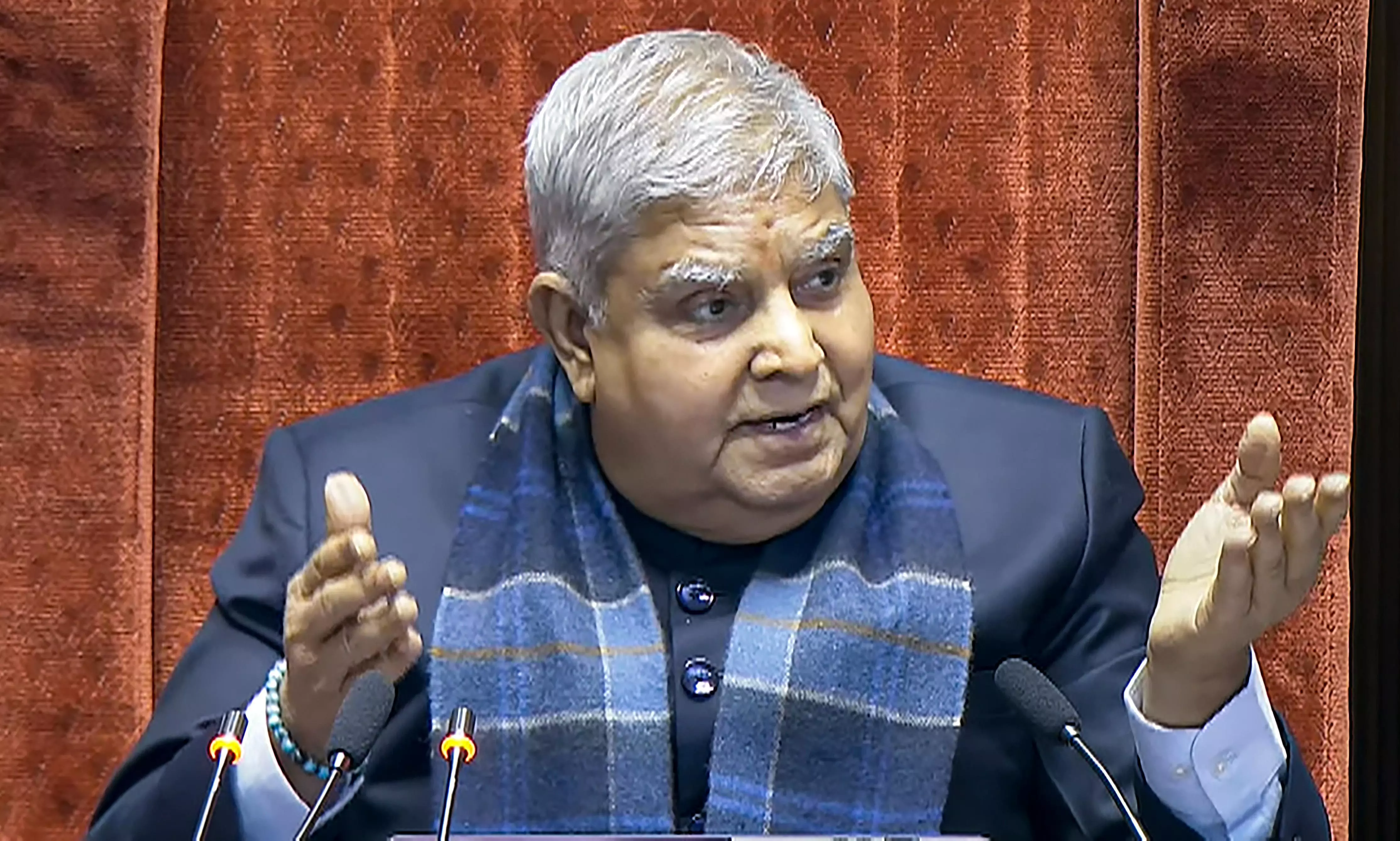
India doesn't want judges to act as 'super Parliament': Jagdeep Dhankhar
The vice president said that now there are judges who will not only legislate but also perform executive functions and act as 'super Parliament' without any accountability

Vice President Jagdeep Dhankhar on Thursday (April 17) voiced concern over the Supreme Court’s move to prescribe a timeline for the President to decide on bills saying that India did not want judges who will legislate and act as a “super Parliament.”
His comments come days after the Supreme Court, in a ground breaking judgement, set a three-month timeline for the president to decide on bills sent for her consideration by governors. The top court clarified that the President should decide on the bills reserved for her consideration by the governor within three months from the date such reference is received.
Expresses surprise
The vice president expressed surprise over the top court’s move of issuing a directive to the president and wondered where the country was heading. Also read: SC slams TN Governor, says withholding 10 Bills for President’s nod is ‘illegal’
“There is a directive to the President by a recent judgement. Where are we heading? What is happening in the country? We have to be extremely sensitive. It is not a question of someone filing a review or not. We never bargained for democracy for this day. President being called upon to decide in a time-bound manner, and if not, becomes law,” Dhankhar said.
Addressing a group of Rajya Sabha interns, he said that now there are judges who will not only legislate but also perform executive functions and act as “super Parliament” without any accountability.
“So we have judges who will legislate, who will perform executive functions, who will act as super Parliament, and absolutely have no accountability because law of the land does not apply to them,” said Dhankhar.
Flags concerns
He said that his concerns were at a “very highest level” and he had never thought in “my life” that he will have the occasion to see it.
He pointed out that the position of the President of India was an elevated one and that the President takes oath to preserve, protect and defend the Constitution.
Others, including ministers, the vice president, parliamentarians and judges take oath to abide by the Constitution.
“We cannot have a situation where you direct the President of India and on what basis? The only right you have under the Constitution is to interpret the Constitution under Article 145(3). There it has to be five judges or more ...,” he said.
Judge cash row
Meanwhile, Dhankhar also questioned the lack of an FIR in the discovery of wads of burnt cash case from the residence of a high court judge, wondering whether a “category beyond law” has secured immunity from prosecution.
Also read: Cash row: SC junks plea for FIR against Justice Varma, terms it 'premature'
The Supreme Court ordered an in-house probe into the alleged discovery of half-burnt wads of cash from Justice Yashwant Varma's residence after a fire on the night of Holi on March 14. Justice Varma has now been repatriated from the Delhi High Court to his parent high court of Allahabad.
Dhankhar also questioned the legal standing of the three-judge panel carrying out an in-house probe into the matter.
Referring to the case, he said every Indian is deeply concerned. “If the event had taken place at his (common man's) house, the speed would have been an electronic rocket. Now it is not even a cattle cart.” Dhankhar said while a committee of three judges is probing the matter, an investigation is the domain of the executive and not the judiciary.
‘No legal standing’
Dhankhar said the committee has not been set up under any provision of the Constitution or law.
“And what can the committee do? The committee can at the most make a recommendation. Recommendation to whom? And for what? The kind of mechanism we have for judges, the only action finally that can be taken is by Parliament (by way of removal of the judge),” he said.
The committee report, Dhankhar said, “inherently lacks legal standing”.
Also read: Burnt cash row: In-house probe mooted by SC enters key stage
“It is now over a month. Even if it is a can of worms, even if there are skeletons in the cupboard, (it's) time to blow up the can, time for its lid to go out, and time for the cupboard to collapse. Let the worms and skeletons be in the public domain so that cleansing takes place,” Dhankhar said.
(With agency inputs)

